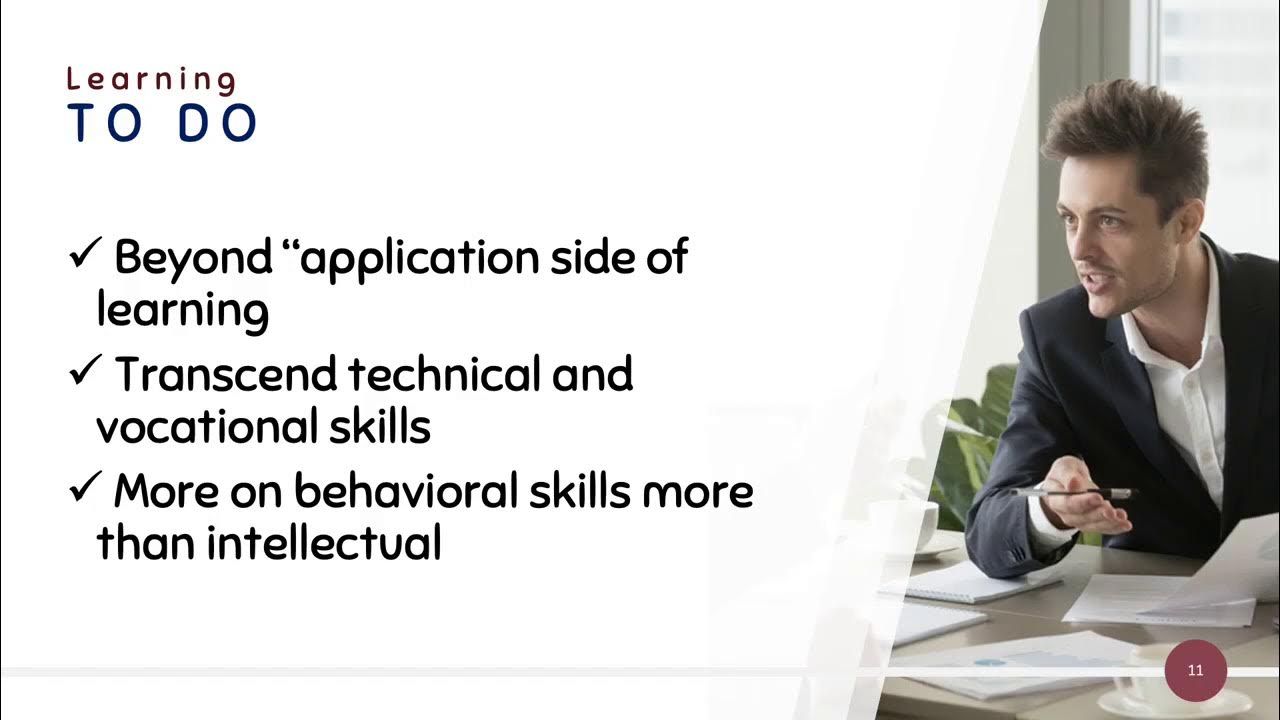Trauma and Addiction: Crash Course Psychology #31
Summary
TLDRThis script explores J.R.R. Tolkien's experiences in WWI and his creation of 'The Hobbit' and 'The Lord of the Rings' as a way to process trauma. It delves into PTSD's impact on veterans and civilians, including symptoms like nightmares and emotional changes. The video discusses the brain's response to trauma, the link between PTSD and addiction, and the potential for post-traumatic growth. It also touches on the complexities of treating PTSD and addiction, emphasizing the importance of support and understanding.
Takeaways
- 📚 J.R.R. Tolkien, the author of 'The Hobbit' and 'The Lord of the Rings', was deeply affected by his experiences in World War One, which he processed through writing.
- 🎭 Most people will experience trauma at some point in their lives, which can lead to stress-related behaviors and potentially psychological disorders like PTSD.
- 🌟 Post-traumatic growth is possible, where individuals can experience positive psychological changes after struggling with trauma.
- 🧠 PTSD is not limited to war veterans and is characterized by four major clusters of symptoms: re-experiencing the event, avoidance, physiological arousal, and negative changes in emotions and beliefs.
- 👥 Risk factors for PTSD are complex and can include genetic predispositions, environmental context, and past experiences such as childhood abuse.
- 🧪 Neurological changes related to PTSD can include the limbic system flooding the body with stress hormones and potential damage to the hippocampus, affecting memory consolidation.
- 🔄 The relationship between trauma and addiction is strong, with many PTSD sufferers also struggling with substance abuse as a coping mechanism.
- 🌱 Post-traumatic growth can be facilitated through treatment and social support, allowing individuals to achieve positive change after a traumatic event.
- 💊 Addiction is often a secondary issue to stress and emotional trauma, and treating it may require addressing the underlying psychological issues.
- 🤝 The Dual Diagnosis Model of treatment is an approach that addresses both addiction and the underlying psychological issues simultaneously.
- 🌐 The resilience of humans allows for recovery from PTSD and addiction with proper support and resources.
Q & A
What was J.R.R. Tolkien's experience during World War One?
-J.R.R. Tolkien was an English World War One veteran who served as a reluctant soldier. He experienced the bloody battle of Somme, suffering tremendous shock, guilt, and loss during and after the war.
How did J.R.R. Tolkien process his traumatic experiences?
-Tolkien processed his traumatic experiences by turning to writing fiction, eventually constructing a world that helped him and readers understand war, human nature, loss, and growth.
What is post-traumatic stress disorder (PTSD)?
-PTSD is a psychological disorder generated by either witnessing or experiencing a traumatic event. It was once called 'shell shock' and is not limited to veterans.
What are the four major clusters of symptoms for PTSD as classified in the DSM V?
-The four major clusters of PTSD symptoms are: re-living the event through intrusive memories, nightmares, or flashbacks; avoiding situations associated with the event; experiencing excessive physiological arousal; and pervasive negative changes in emotions and beliefs.
Can PTSD lead to substance abuse?
-Yes, PTSD can lead to substance abuse as a coping mechanism. According to the US Department of Veteran's Affairs, more than 2 in 10 veterans with PTSD also struggle with substance abuse problems.
What is the Dual Diagnosis Model of treatment?
-The Dual Diagnosis Model of treatment is an approach that addresses both addiction and underlying psychological issues, such as PTSD, simultaneously.
What is post-traumatic growth?
-Post-traumatic growth refers to positive psychological changes that can result from the struggle with challenging circumstances and life crises, similar to how Tolkien used his experiences to drive his powerful, allegorical stories.
How does trauma affect the brain?
-Trauma can affect the brain by possibly damaging and shrinking the hippocampus, which is associated with memory consolidation, leading to vivid and fresh memories of the trauma through flashbacks and nightmares.
What are the risk factors for developing PTSD?
-Risk factors for developing PTSD are complex and can include genetic predispositions, context and environment, such as childhood abuse, which might make someone more likely to default to suppression and avoidance.
How is addiction defined in the context of this script?
-Addiction is defined as compulsive, excessive, and difficult-to-control substance use or other initially pleasurable behaviors that begin to interfere with ordinary life, work, health, or relationships.
What is the relationship between trauma and addiction?
-Trauma and addiction can be closely related, with trauma often leading to substance abuse as a coping mechanism. This relationship may require dual treatment to address both issues effectively.
Outlines

Этот раздел доступен только подписчикам платных тарифов. Пожалуйста, перейдите на платный тариф для доступа.
Перейти на платный тарифMindmap

Этот раздел доступен только подписчикам платных тарифов. Пожалуйста, перейдите на платный тариф для доступа.
Перейти на платный тарифKeywords

Этот раздел доступен только подписчикам платных тарифов. Пожалуйста, перейдите на платный тариф для доступа.
Перейти на платный тарифHighlights

Этот раздел доступен только подписчикам платных тарифов. Пожалуйста, перейдите на платный тариф для доступа.
Перейти на платный тарифTranscripts

Этот раздел доступен только подписчикам платных тарифов. Пожалуйста, перейдите на платный тариф для доступа.
Перейти на платный тарифПосмотреть больше похожих видео

MK Prinsip Pengukuran Kimia - Spektroskopi Rotasi Murni

Compound Amount Formula with Unknown Interest Rate and Time

Rapid Progress on J-31 Stealth Fighter, Pakistan Set to Receive Its First Batch Soon| InShort

K-Food Ramen Happening / Hello Jadoo

Ladder operators in angular momentum

ANG USAPIN TUNGKOL SA JEHOVAH

4 Pillars of Education
5.0 / 5 (0 votes)
